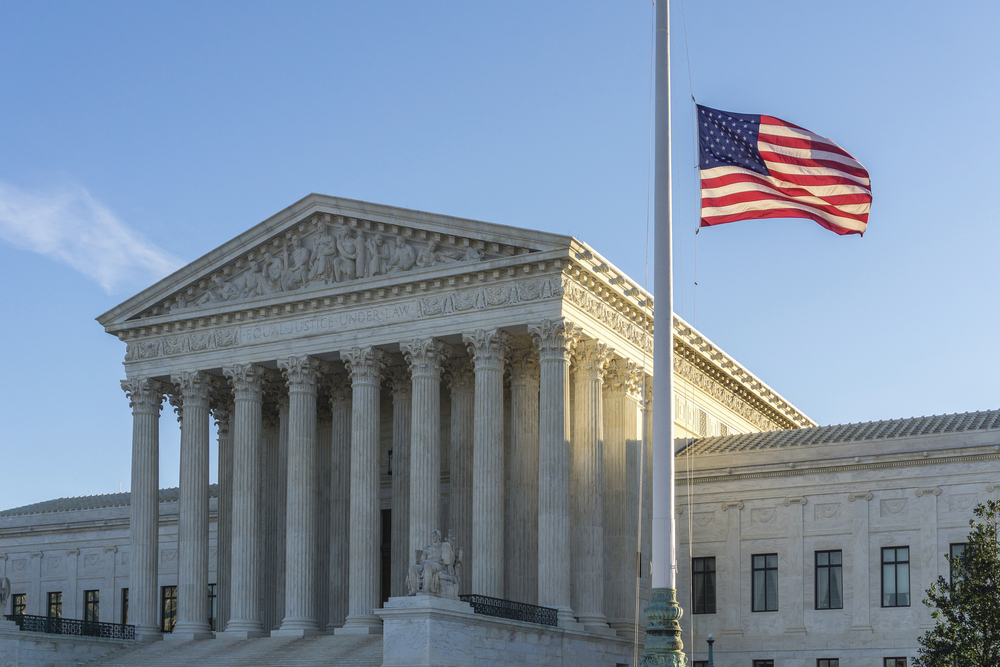The U.S. Supreme Court is nearing the end of its current term with several high-stakes cases still awaiting resolution. Among the major disputes yet to be decided are cases involving race-conscious collegiate admission policies, LGBT rights, and student debt forgiveness. The court’s conservative majority, consisting of six justices, has already shown skepticism towards the legality of student admissions policies employed by prestigious institutions such as Harvard University and the University of North Carolina.
The pending rulings on these cases could potentially end affirmative action programs utilized by many colleges and universities across the United States for decades. These programs aim to increase the representation of Black, Hispanic, and other underrepresented minority students on campuses. The court’s conservative justices made headlines last year when they overturned the landmark 1973 Roe v. Wade ruling, which had legalized abortion nationwide. This decision led to a wave of state-level restrictions on abortion rights and further expanded gun rights.
Public confidence in the Supreme Court has experienced a significant decline, evident in opinion polls. The court has also faced ethical controversies, including revelations about ties between conservative Justice Clarence Thomas and a Texas billionaire. Against this backdrop, the court finds itself once again in a position to decide cases that could reshape crucial areas of law and profoundly impact millions of Americans’ lives.
The current Supreme Court term began in October and traditionally concludes by the end of June each year. The court has already ruled on two significant race-related cases during this term. A 5-4 ruling on June 8 determined that a Republican-drawn electoral map in Alabama violated a federal law prohibiting racial discrimination in voting. Then, a 7-2 ruling on June 15 dismissed a challenge to long-standing federal standards that prioritize Native Americans and tribal members in adoption or foster care placements involving Native American children.
Trust BCG Attorney Search to connect you with top legal employers in your area. Search now!
In both these cases, the challengers argued that laws intended to protect certain minority groups resulted in unlawful racial discrimination against other Americans. In the student admissions cases, the challengers, led by anti-affirmative action activist Edward Blum, accused Harvard University and the University of North Carolina of discriminating against white and Asian American applicants. Both institutions have maintained that they use race as just one factor in a holistic evaluation process that does not involve quotas, aiming to foster campus diversity for the benefit of all students.
Furthermore, the Supreme Court is set to decide on the legality of President Joe Biden’s plan to cancel approximately $430 billion in student loan debt. During oral arguments in February, conservative justices expressed skepticism regarding the legality of Biden’s proposal to eliminate debt for around 40 million student borrowers, a promise he made during his 2020 campaign. The plan faced opposition from conservative-leaning states such as Arkansas, Iowa, Kansas, Missouri, Nebraska, and South Carolina, as well as from individual borrowers who disagreed with the plan’s eligibility requirements.
Another pivotal case before the court involves a Colorado website designer, Lorie Smith, seeking the right to refuse designing wedding websites for same-sex couples. Smith argues that her refusal is protected by the First Amendment’s free speech rights, claiming she is an artist and should not be compelled to express messages conflicting with her Christian faith. This case has significant implications for LGBT rights and the balance between anti-discrimination laws and individual religious freedoms.
Additionally, the court is poised to decide a case that could limit presidential power over immigration. Conservative-leaning Texas and Louisiana are challenging President Biden’s policy that narrows the scope of immigration enforcement actions, potentially leading to a significant shift in immigration policy.
Several other cases await the court’s decision, including a lawsuit by a former U.S. Postal Service carrier seeking to make it easier for employees to request religious accommodations from employers. Additionally, a First Amendment case involves a man appealing his conviction for stalking a woman in Colorado, potentially clarifying the line between protected speech and criminal threats.
Lastly, Republican officials in North Carolina are hoping for a favorable ruling that would grant state legislatures greater control over federal elections. However, the court may dismiss the case due to a reversal by a lower court. As the Supreme Court wraps up its term, these pending decisions will shape the legal landscape and have far-reaching consequences for various aspects of American life.
Your opinion matters! Join the discussion by leaving a comment below.

